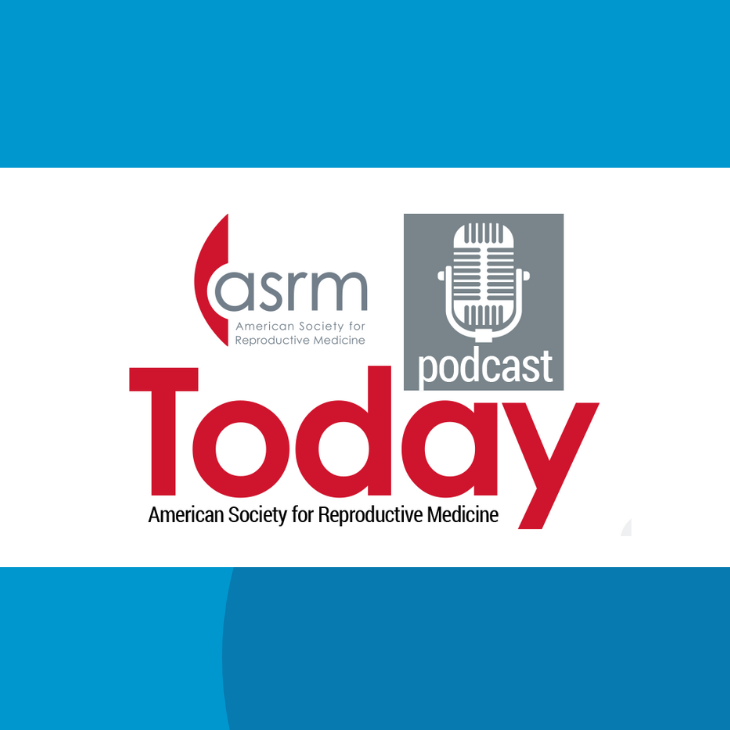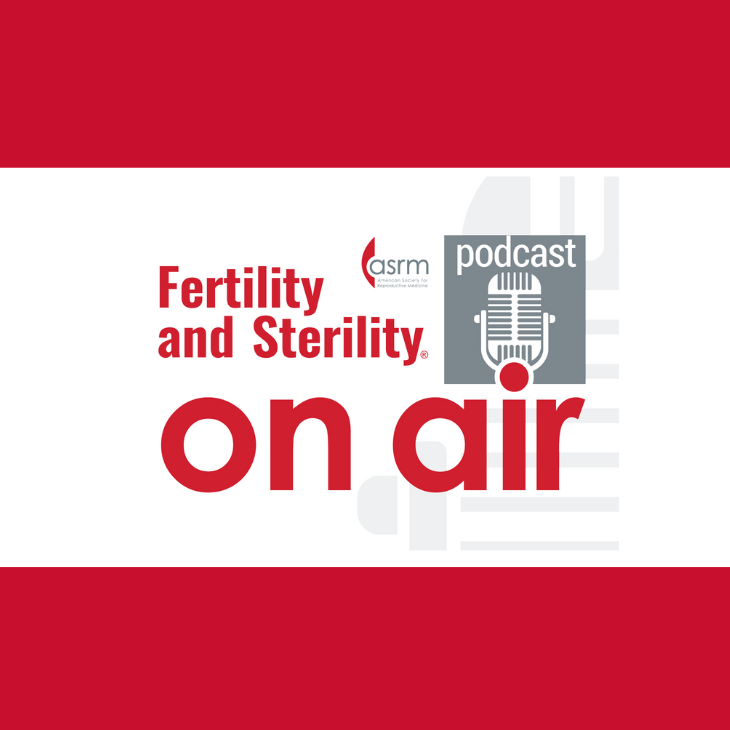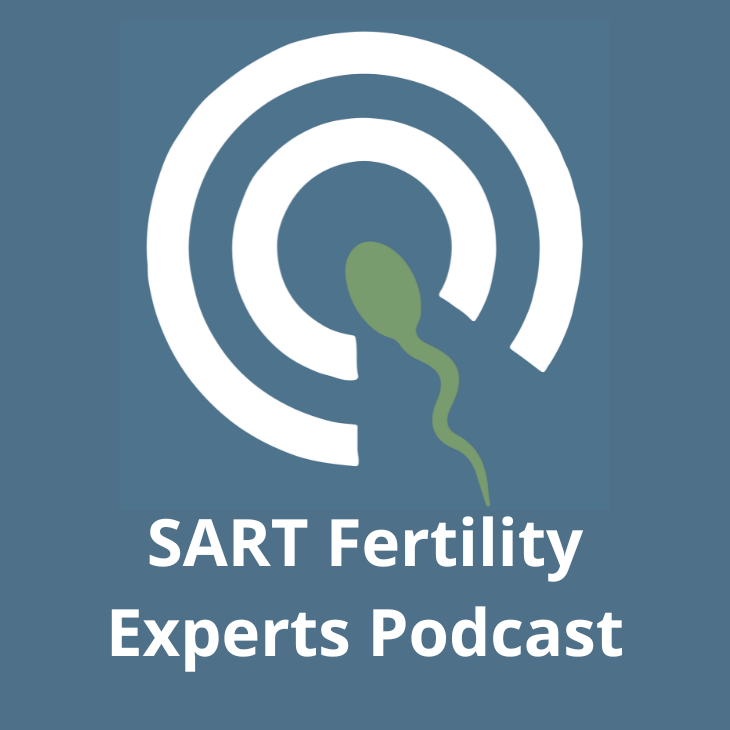
Transcript
What makes us who we are? Is it our genes, our environment, or a complex interplay of both? In this episode we'll explore how genetics influences behavior and personality, how environmental factors come in to play, and what modern science says about the balance between the two.
Guest: Aishwarya Arjunan, MS, MPH, CGC
Welcome to ASRM Today, a podcast that takes a deeper dive into the current topics in reproductive medicine. Welcome to ASRM Today, I'm your host Jeffrey Hayes, and today we're tackling one of the oldest and most hotly debated questions in science. What makes us who we are? Is it our genes, our environment, or a complex interplay of both? This is the heart of the Nature vs. Nurture debate. Today we'll explore how genetics influences behavior and personality, how environmental factors come into play, and what modern science says about the balance between the two. The Nature vs.
Nurture debate has a long history, stretching back centuries. Philosophers like John Locke argued that humans are born as blank slates, shaped entirely by their experiences. On the other hand, some thinkers believe that much of who we are is hardwired into us at birth.
Fast forward to the 20th century, and genetics began to take center stage. The discovery of DNA and the understanding of heritability revolutionized our view of human traits. Suddenly the idea that personality, intelligence, and behavior might be influenced by genes wasn't just a theory, it was testable.
The environment shapes us in profound ways too. Childhood experiences, education, socioeconomic status, and even the culture we grow up in all play a role in who we become. But modern science has revealed something even more fascinating.
The influence of epigenetics. I asked my guest, Aishwarya Arjunan, about the influence of epigenetics on medicine. I think epigenetics really is a game changer in medicine because it really kind of shows us that our genes aren't the complete story.
When we think about traditional genetics, it's really focused on how changes to our DNA sequence itself might impact someone, whereas epigenetics really looks at how genes can be turned on or off by environmental factors, lifestyle choices, and other factors. Things like diet, stress, exposure to toxins, exercise can all influence which genes are active in our bodies without actually changing our DNA sequence. This really I think has huge implications for medicine because it helps us understand why folks with similar genetic risk factors can have vastly different health outcomes.
You might have someone with a genetic predisposition to type 2 diabetes that might never develop the disease if they maintain a healthy lifestyle that positively influences their gene expression. I think research is really being looked at into how diet, stress, toxins can influence these various epigenetic markers that we might have. Things like chemical modifications like DNA methylation or histone modifications that can turn genes on and off, potentially preventing or triggering disease in the future.
And I think really when we're thinking about application of epigenetics, the thing that gets really exciting is what we talk about when it comes to precision medicine, like using epigenetic profiles from individuals to tailor treatments to individual patients. So how could we possibly use epigenetic therapies to reverse harmful gene expression? And there's many different diseases that we've historically thought of as being multifactorial where there's multiple things that are impacting whether or not someone has a particular disease like cancer or Alzheimer's. Even cancer treatment is a great example where many cancers are driven by abnormal epigenetic changes rather than single DNA mutations alone.
And so if we can leverage that information to help develop therapies and drugs down the line, that really could revolutionize the way that we think about cancer treatment. And so I think epigenetics overall is really helping us move from a one-size-fits-all approach in medicine that's really been our traditional way to really moving towards a tailored, individualized approach for that particular patient. And whether it's multifactorial conditions or single gene conditions, epigenetics really does have a role to play.
And I think understanding what that role is is going to give us a lot more insight on what sort of tools we can develop for prevention and treatment down the line. So while your genetic code provides the blueprint, your environment can influence how that blueprint is read. This means that two people with the same genetic predisposition for a trait might express it differently based on their life experiences.
Now let's talk about two of the most controversial topics in behavioral genetics, intelligence and personality. Behavioral genetics has its share of controversies. For example, some researchers have explored genetic links to behaviors like addiction, aggression, or risk-taking.
While this research can provide valuable insights, it also raises ethical questions. Can we use genetic information to predict behavior? Should we? And what happens if this information is used to stereotype or discriminate against people? Insert clip. So what does the future hold for the nature versus nurture debate? Advances in technology like whole genome sequencing and machine learning are giving us deeper insights into the genetic basis of behavior.
They're also highlighting just how complex human traits are. As we learn more, perhaps one thing becomes clear. Nature and nurture are not opposing forces.
They work together in intricate ways. Thank you for joining me on this journey into the genetics of behavior and personality. If you found today's episode thought-provoking, be sure to subscribe and leave us a review.
Until next time, I'm Jeffrey Hayes and this is ASRM Today. This concludes this episode of ASRM Today. For show notes, author information, and discussions, go to asrmtoday.org. This material is copyrighted by the American Society for Reproductive Medicine and may not be reproduced or used without express consent from ASRM.
ASRM Today series podcasts are supported in part by the ASRM Corporate Member Council. The information and opinions expressed in this podcast do not necessarily reflect those of ASRM and its affiliates. These are provided as a source of general information and are not a substitute for consultation with a physician.
ASRM Today

ASRM Today: Genetics Bonus Episode - Inclusive Family History Project
Explore how inclusive family histories improve healthcare for donor-conceived and adopted individuals with new EHR standards and provider education tools.
ASRM Today: Genetics - Episode Nine
Explore ethics, identity, and humanity in a dystopian love story as ASRM Today discusses Never Let Me Go through the lens of genetics and reproduction.
ASRM Today: Genetics - Episode Eight
Explore ethical considerations in embryo transfer, PGTM, and genetic testing with Dr. Sigal Klipstein on ASRM Today’s genetics-focused podcast episode.


